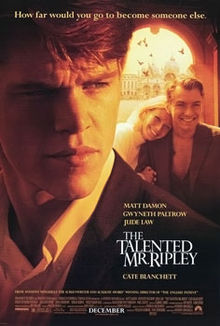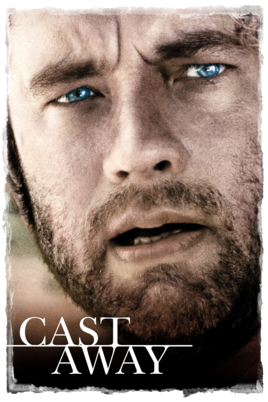The Talented Mr. Ripley (1999) bears more than a passing resemblance to Eugene Onegin, and not just because the titular character of the opera has much in common with Dickie Greenleaf (Jude Law), the pretentious heir to a fortune who lives a glamorous, bohemian lifestyle.
In the opera, Onegin’s friend, Lenski, sings an anguished aria, “Kuda, kuda,” in Act II, before their duel in which Lenski is killed. Director Anthony Minghella not only uses the aria in Ripley, he also stages a scene at an opera. (If you guessed it’s Eugene Onegin, you’re right.)

“Tom Ripley [played by Matt Damon], murderer and romantic, seems drawn from parts of both Lenski and Onegin,” according to Opera News’ Oct. 2017 Operapedia by Henry Stewart. “Damon’s tearful, ambiguous self-recognition as he watches the scene onstage, as Cate Blanchett’s date at the opera, is haunting.”
Ripley “is at the opera watching Tchaikovsky’s Eugene Onegin, specifically the scene where Lensky and [Onegin] face off in a fateful duel,” according to an Operawire story by David Salazar. “It’s a rather potent and poignant moment.”
The opera appears, in a subtler way, in the 2000 Tom Hanks movie, Cast Away. The Act III aria (“Lyubvi vse vozrastï pokornï”) sung by Prince Gremin – Tatyana’s husband – “is a classic aria for lyric bass,” writes Henry Stewart in Opera News’ Operapedia. “The melody is gushing but not especially complicated, which is why the Russian FedEx man … gets away with singing it, as he delivers a package to an American in a cowboy hat.” The opera has also been translated into film about a half a dozen times, most recently in 1999 in a version starring Ralph Fiennes and Liv Tyler. See Opera Carolina’s take on the original adaption of Eugene Onegin onMay 9, 11 and 12.

Article written by Page Leggett


